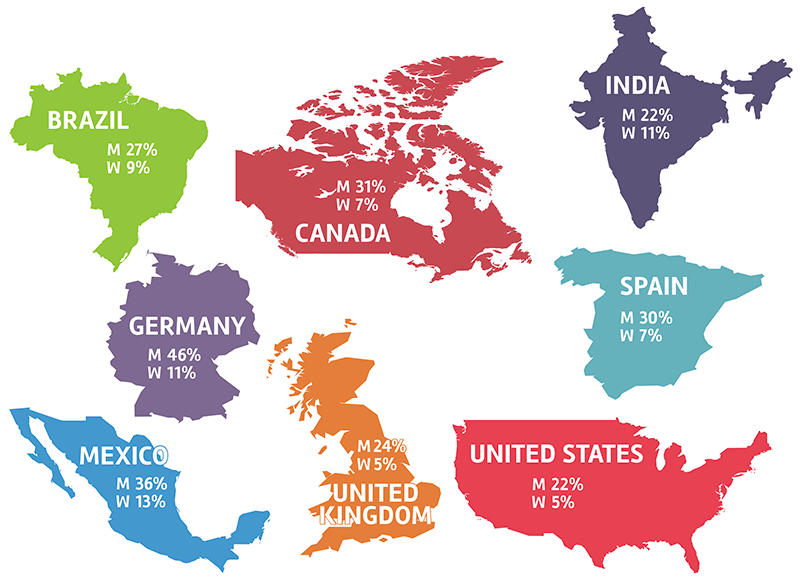Women across the globe are pursuing degrees at higher rates than men, but that hasn’t closed the gender gap in the number of women receiving STEM degrees or working in STEM fields.
By Roberta Rincon, Ph.D., SWE Associate Director of Research
In all 38 countries that are members of the Organization for Economic Cooperation and Development (OECD) and most of the partner countries that report data to the OECD, women are more likely than men to have completed a tertiary degree.¹ While women are pursuing higher education at higher rates than men, they are more likely to major in non-STEM fields. Far fewer women than men are selecting to focus their studies in engineering and technology.² This is a global issue, as shown in the graphics below of select countries that provide data to the OECD. For example, 27% of men who earned a tertiary degree in Brazil earned their degree in an engineering or technology major. However, only 9% of women who earned a tertiary degree earned one in engineering or technology, with 91% earning a degree in an alternative field.
Despite the increasing number of women pursuing higher education, it is difficult to close the gender gaps we see in the workforce if women are not choosing to major in STEM fields. Research has shown that diverse perspectives and experiences are important to the development of innovative solutions to societal problems, which is why such countries as Canada, the U.S., and the U.K. and global organizations such as the United Nations have introduced goals and strategies aimed at increasing STEM talent.
1. Source: OECD/UIS/Eurostat (2021), Table B5.2. A tertiary degree is generally the equivalent of a U.S. bachelor’s degree.
2. Engineering and technology degrees include tertiary degrees in engineering, manufacturing, and construction and in information and communication technologies, as defined by the OECD.
Editor’s note: Please visit the SWE research site for the latest studies and statistics on women in engineering and STEM: https://swe.org/research


